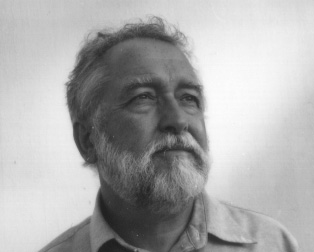Tomas Svoboda
BIOGRAPHY - Long version

Born in Paris of Czech parents, December 6, 1939, Tomas Svoboda spent the years of World War II in Boston, where he began his musical education on the piano at the age of three. Showing an early talent for composing, Svoboda completed his first opus, now published, at the age of nine. After his family's return to Prague in 1946, he continued his music studies, entering the Prague Conservatory in 1954 as its youngest student.
Unable to take formal classes in composition during his first years at the Conservatory, Tomas Svoboda nevertheless continued to compose, completing his SYMPHONY No. 1 (of Nature), Op. 20, at the age of 16.
The premiere of this symphony in 1957 by the prestigious Prague Symphony Orchestra (Václav Smetáček, cond.) caused a sensation, for until Svoboda walked onto the stage to acknowledge the applause, many in the audience had not realized the 36 minute symphony had been composed by a 16 year old boy not yet even formally schooled in composition or orchestration.
The inherent creative abilities possessed by the young Svoboda deeply impressed such renowned composers as Benjamin Britten, Darius Milhaud and the great Czech composer, Bohuslav Martinů; who upon his death in 1959, passed on unfinished compositions to the then 19 year old Svoboda.
In 1962 after graduating from the Prague Conservatory with degrees in percussion, composition and conducting, Svoboda entered the Academy of Music in Prague. By this time, performances and radio broadcasts of Svoboda's orchestra works brought wide national recognition to Svoboda, clearly establishing him as Czechoslovakia's most important young composer.
In 1964, his family departed Czechoslovakia and settled in the United States, where Svoboda enrolled at the University of Southern California as a graduate student in 1966. His compositional skills were already so well-developed that the department allowed him to forgo its usual program in order to study individually with Ingolf Dahl and then Department Chairman Halsey Stevens, a composer and Bartok scholar.
Stevens has written, "It was almost embarrassing to have him come to lessons with work so completely and satisfactorily realized that it needed almost nothing in the way of criticism." After receiving a Master's degree with Honors in 1969, Tomas Svoboda accepted a position at Portland State University in Oregon where he taught composition and music theory for 27 years, retiring from full time teaching duties in June 1998.
In 1981, first publication of his music bought forth a front cover tribute to Tomas Svoboda by the highly respected Piano Quarterly.
In 1985 Svoboda was awarded the ASCAP Foundation/Meet the Composer Award and was commissioned to write his CHORALE for Piano Quintet (homage to Aaron Copland), Op. 118 for Aaron Copland's 85th birthday celebration in New York.
In 1987, national music educators surveyed by the Piano Quarterly, voted Svoboda's CHILDREN'S TREASURE BOX piano series to be among the "40 most important composer collections of the 20th century" for teaching piano.
His CONCERTO for Marimba & Orchestra, Op. 148 was featured in the opening concert at the 1995 American Symphony Orchestra League's National Convention.
In the summer of 1999, Svoboda's most well known orchestral work Overture of the Season, Op. 89 received a national radio broadcast by the San Francisco Symphony, conducted by the renowned Czech conductor Libor Pesek.
In 2001 the Dayton Philharmonic (Neal Gittleman, cond.) released the first "All-Svoboda" orchestral CD of Svoboda's Piano Concertos 1 & 2 featuring Norman Krieger and Tomas Svoboda.
In July 2003 the Oregon Symphony released the 2nd "All-Svoboda" orchestral CD which contains his Marimba Concerto, Symphony No. 1(of Nature) & Overture of the Season. To date, 21 CDs have been released with 43 works by Svoboda on them.
In December 2003, Svoboda's Marimba Concerto was named in a Grammy Award nomination in the category of "Best Instrumental Soloist With Orchestra"; Niel DePonte, marimba; James DePreist, cond.; Oregon Symphony; [Albany Records].
To date, over 55 of Svoboda's compositions have been recorded, including 10 works from his orchestral catalog.
Today, over 1,300 known performances of his music have taken place throughout the world, including 500+ orchestral performances, and include such major orchestras as the Boston, Philadelphia, Cleveland, San Francisco, Toronto, Monte-Carlo, Prague, Sapporo, Nagoya, plus the National Symphonies of Guatemala and Costa Rica.
In the Fall of 2016, the Portland Youth Philharmonic (OR) gave the world premiere of Svoboda's profound Symphony No. 2 (of Love & War), Op. 41; a work originally scheduled for premiere in 1964 with the Czech Philharmonic (Karel Ancerl, cond.), but cancelled after Svoboda escaped the communist controlled govt. of Czechoslovakia with his father (world renowned computer scientist Antonin Svoboda and mother, Mila.
On May 30, 2017 the Prague Symphony Orchestra, who premiered 3 Svoboda orchestral works between 1959-1962, performed his Overture of the Season, Op. 89 [Jonathon Heyward, cond.] at the renowned Prague Spring 72nd International Music Festival in the Czech Republic.
Today, more than 115 tracks of Tomas Svoboda’s recorded music are now available for digital download, streaming, purchase, etc. on such websites as Amazon Music, Apple Music, Spotify, Pandora and many others throughout the world.
Recent and upcoming recordings of 8 more Svoboda compositions involve Nikol Bóková (Czech Republic), Rose City Brass Quintet, Portland Youth Philharmonic and Charles Schlueter (former Principal Trumpet, Boston Symphony).
On Dec. 12th 2012, Tomas Svoboda suffered a massive stroke and though he never lost his positive outlook on life, sense of humor or determined efforts to recover enough to compose again, it was not to be.
On Nov. 17, 2022, Tomas Svoboda passed away peacefully with family by his side, in Portland, Oregon.
(Nov. 18, 2022)
Photo: © Jan Kavan
[ Top ↑ ]


